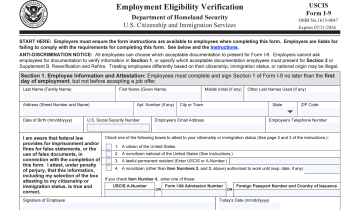In today’s job market, employers have begun looking at resumés differently than in the past. Gaps in employment are no longer considered a disqualifier and frequent job changes are not necessarily a negative attribute.
Different candidates may provide similar reasons for leaving past jobs. Being prepared with follow-up questions can help recruiters learn more about what the candidate is looking for and if he or she will be a good fit for the position and company.
This can make a recruiter’s job difficult, so Nadine Miller, Recruiting Business Partner, and Katie Kestly, Recruiting Business Partner Lead at MRA, shared some insight to help recruiters interpret what gaps in employment or frequent job changes could mean on a resumé.
Katie Kestly on Employment Gaps
Many candidates are willing and eager to explain any employment gaps. Try to approach asking about gaps as a way to learn as much as possible about the candidate’s job-related experiences and transferrable skills. Allowing for a full explanation of what led to a job ending and how the time until the next job began can provide insight to a person’s personality, drive, goals, and personal convictions. Be cautious and prepared for the response, however. Some candidates may choose to share protected information about their health, criminal history, or other family information, so it is important to know what you can and cannot ask in an interview. It is best to avoid questions leading to responses that could expose bias, especially if they are not relevant to the position.
The following reasons are some of the most common given by candidates to explain gaps in employment and questions that can help recruiters learn more.
| Reason for Gap | Follow-Up Questions |
|---|---|
| Voluntary—This may include caring for family members, personal or professional development, travel, or volunteering. |
|
| Involuntary—This may include a reduction in workforce, merger or acquisition, company closing, or other organizational decision. |
|
| Thoughtful Job Search—Some candidates endeavor to be thoughtful and selective after a period of instability or uncertainty. |
|
| Co-workers/Work Environment—This may indicate difficulty working with others, work ethic, or problem-solving skills, but may also be related to leadership. |
|
| General Reasons—Some candidates may have multiple reasons for employment gaps or may have gaps for reasons such as relocation, graduation, or other circumstances. |
|
Nadine Miller on Frequent Job Changes
There are some hidden advantages to hiring a candidate that has made several job changes in a short period of time. Today, candidates are being encouraged to switch jobs every three years by career resources and many are listening to this advice. They are told that switching jobs will increase their skill set, make them more adaptive to change, expose them to new technologies, and make them a more valuable asset to any company.
The following reasons are some of the most common given by candidates for making changes and some questions that can help recruiters learn more about the motivation behind those moves.
| Reason for Leaving | Follow-Up Questions |
|---|---|
| Work Life Balance—Candidates are looking for positions that offer true work-life balance. |
|
| Broken Promises—Candidates trust what they hear during the interview process and will leave if there is no follow through. |
|
| Career Pathing—Candidates want a clear path for career growth. |
|
| Making a Difference—Candidates need to believe in the products and mission of their company and want to work for a company that makes a difference. |
|
| Remote Work Opportunities—The perspective on this has changed over the past several years. Many candidates choose working remotely and prefer to work where it is an option. |
|
|
Poor Management—When a candidate quickly gives this as the reason for wanting to leave a company, it can indicate a candidate who:
It can also be a sign that the candidate is not self-aware of how what he or she says can be perceived by listeners. |
|
| Poor Culture—This type of response may be given by a candidate who struggles to perceive the type of culture they are truly looking for and find they are not satisfied with the culture, or the way things are done, soon after hire. |
|





